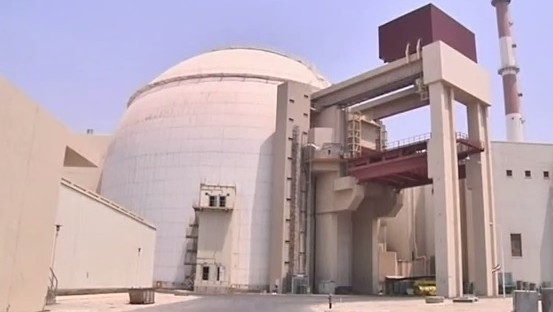Iran said to reject claims of concessions for talks extension
BY LAZAR BERMAN/ December 7, 2014/The Times Of Israel
An Iranian official denied reports that Tehran made significant concessions in exchange for extending talks on its nuclear program.
“The conditions for extending the nuclear negotiations to July 1, 2015 were like the conditions reining the extension of the previous deadlines and no new undertaking has been added to it,” said Behrouz Kamalvandi, spokesman for the Atomic Energy Organization of Iran, according to the semi-official Fars news agency.
Kamalvandi was responding to an AP report that Iran promised to allow snap inspections of its facilities and to neutralize much of its remaining uranium stockpile.
Those terms are included in a document that US officials say represents the terms for a seven-month extension in nuclear negotiations between world powers and Iran, agreed to when the last deadline of November 24 passed without an accord. A copy was obtained by The Associated Press.
Fars also reported than a source close to Iran’s nuclear negotiating team rejected claims that Iran had put a freeze on testing new centrifuge machines.
“This is not true at all and the trend of R&D on enrichment is moving along its natural track at the Atomic Energy Organization of Iran,” said the source.
The authenticity of the document outlining the agreement was confirmed by three US officials and congressional aides familiar with closed-doors discussions in recent days that have included top US nuclear negotiator Wendy Sherman and Jake Sullivan, formerly Vice President Joe Biden’s national security adviser. The officials have been presenting the Iranian concessions to lawmakers in the hopes of convincing them to support the extension and hold off on new economic sanctions that could derail the diplomatic effort.
There is no proof Tehran has agreed to or will follow through on the steps outlined, and negotiators representing world powers and Iran offered few specifics on their progress when they agreed to extend negotiations until July. No signed agreement emerged from that understanding, but administration officials say Iran accepted important limits on its nuclear program in the discussions last month. The officials weren’t authorized to speak publicly on the sensitive negotiations and insisted on anonymity.
The US says Iran will further limit its development of new technology for enriching uranium that could be used for energy generation, as Tehran says is its objective, or for use in a nuclear warhead, which Washington and its international partners fear may be Iran’s ultimate intent. It also seems to patch up what critics of last year’s interim nuclear agreement described as loopholes on Iran’s research and development of advanced centrifuges.
For one centrifuge model Iran has been working on, the US says Tehran won’t be able to pursue the industrial-scale operation needed for any “breakout” effort toward producing enough material for a nuclear weapon. For other models in the pipeline, Iran won’t be permitted to feed the centrifuges with uranium gas or begin testing on a cascade level, which are needed steps in their development.
Iran also has reportedly agreed to turn 35 kilograms of higher-enriched uranium oxide stocks into fuel, making it unusable in the event Iran tries to secretly reach nuclear weapons capacity. That amounts for almost half of Iran’s remaining stockpile of material that could in theory be converted into a form that is close to weapons-grade uranium.
In addition, the administration says Iran will grant international inspectors expanded access to its centrifuge production facilities, allowing the UN nuclear agency to double the amount of visits it makes to sites and to undertake unannounced or “snap” inspections. The monitoring aims to deter Iran from producing centrifuges for any covert facility.
Lastly, Iran will refrain from any other forms of enrichment, including through the use of laser technology. Last year’s agreement halted Iran’s progress on its gas centrifuge program, but US officials feared the Iranians could experiment with other technology designed to do the same thing. Iran has attempted laser enrichment in the past, the US believes, but now has committed to refrain from exploring it any further.
It’s unclear how Congress is receiving the message.
Many lawmakers are decrying the stalemate in negotiations and what they perceive as wide concessions by the US and its partners for few steps by Iran to dismantle its nuclear program. Several Democrats and Republicans in the Senate are threatening new sanctions designed to pressure Iran into caving in the nuclear talks. The House voted overwhelmingly for new sanctions 17 months ago.
However, President Barack Obama has threatened to veto any new sanctions legislation while American diplomats continue their push for an accord that would set multi-year limits on Iran’s nuclear progress in exchange for an easing of the international sanctions that have crippled the Iranian economy. Senate hawks are still trying to build a veto-proof majority of 67 votes with Republicans set to assume the majority next month.
The Associated Press contributed to this report.




















